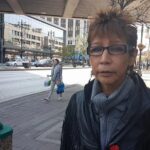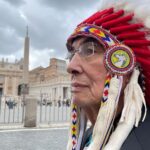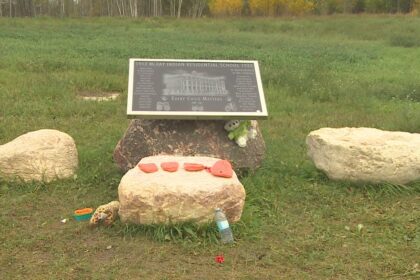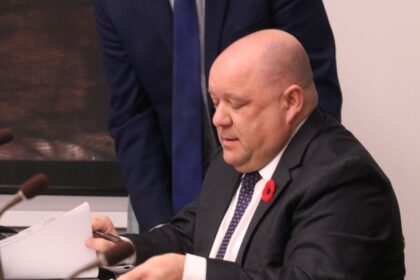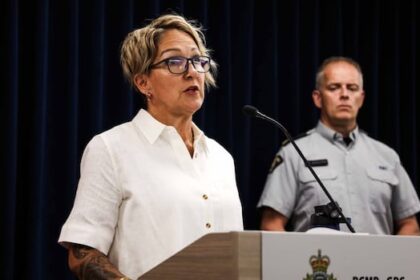The largest delegation of chiefs and councillors to attend the United Nations Permanent Forum on Indigenous Issues in over two decades is calling out Quebec and Canada for failing to uphold the United Nations Declaration on the Rights of Indigenous Peoples (UNDRIP). The 14-member delegation, representing the Algonquin, Innu and Cree nations, says they came to New York to send “a clear message on the international stage” that their rights continue to be violated in Quebec. They highlighted three ongoing concerns; logging and resource extraction near the Algonquin community of Lac Simon; a legal battle over the Chalk River nuclear waste site; and the Innu Nation’s efforts to protect their lands and caribou herds through the courts. The visit comes as federal election campaigning ramps up in Canada. Both the Liberal and Conservative parties have pledged to increase energy development, streamline environmental assessments, and speed up approvals — raising alarm among First Nations leaders. “It’s really scary when the two front runners are talking about nuclear energy as part of their energy dreams for the future,” said Chief Lance Haymond of Kebaowek First Nation. “The unfortunate part about all of the rhetoric that’s going on about the election is if they’re talking about us, then they should be having some discussions with us around what these policies and potential could look like.” Haymond says while the federal Green Party and the Bloc Québécois “have always been the strong supporters,” the major parties are moving in a direction that threatens Indigenous rights. “Mr. Blanchet has done at least three press conferences with us in Parliament to raise the profile of the issue,” he said. ‘We’re tired of hands out to the government and waiting for meagre financial resources to come and help meet our needs,’ says Chief Lance Haymond. Photo: Karyn Pugliese/APTN. The Kebaowek First Nation recently won a judicial review over the proposed nuclear waste facility at Chalk River after a legal review determined the community had not been properly consulted.The legal review noted that was a right under UNDRIP. But Canadian Nuclear Laboratories (CNL) is appealing the decision, said Kebaowek Councillor Justin Roy. “Instead of wasting hundreds of thousands of dollars, why don’t we just sit at the table and figure out the solution,” said Roy. “Now, when it comes to UNDRIP and what it means to Indigenous Peoples, it should be Indigenous Peoples who tell the government and industry how it’s supposed to take place.” Roy pushed back on campaign promises to fast-track approvals for mining and energy related projects. He pointed to the nuclear waste project, which began in 2016 and was supposed to wrap by 2019, but is still unresolved. “It took our legal team and their legal team almost six months just to put agreements and funding and everything in place, leaving us two months to try and do consultation, put boots on the ground,” he said. “To hear Conservatives talk about one year, or the Liberals talk about two years, max – I mean, it’s a pipe dream. On major projects? It cannot happen.” Chief Lucien Wabanonik of Lac Simon First Nation said his community has spent more than two decades resisting logging, mining, and other development on their territory. “The Supreme Court has made clear that they need our consent, they need consultation to make [development] happen in a way that’s gonna be respecting our rights,” he said. Wabanonik also criticized the lack of attention to climate change in this year’s campaign. “Right now, the way governments are planning or talking — I don’t think it’s in the right direction or for the benefit of peoples, because it’s not just First Nations, it’s all peoples,” he said. “And it’s not about colours anymore. It’s about human beings and being able to survive within the next generation.” Read More: Indigenous leaders meet at United Nations, discuss water, challenges in implementing UNDRIP At the core of the delegation’s message is that Canada is not complying with Articles 19 and 32 of UNDRIP, which require governments to consult Indigenous Peoples in good faith and secure their free, prior, and informed consent on laws and development projects that impact their lands. ”That consultation process and that free prior and informed consent, I think this is key for the future and they’re not gonna go forward with any development project, without the consent of First Nations,” said Regional Chief Francis Verreault-Paul, Chief of the Assembly of First Nations Québec-Labrador (AFNQL), who led the delegation. “There’s economic reconciliation. And obviously this is positive and I think we need to keep pushing that forward. But on the other hand, we need to start talking about legislative reconciliation, and that means to recognize and to implement our rights as First Nations,” he said. “We all want to benefit economically. You know, we’re tired of hands out to the government and waiting for meagre financial resources to come and help meet our needs,” said Haymond. “So economic development is a great opportunity for many communities. But we’ve chosen that, you know, nuclear or mining is not something that our community and nation is interested in terms of being the driver.” Continue Reading
Chiefs in Quebec bring fight over development to global stage at UN forum
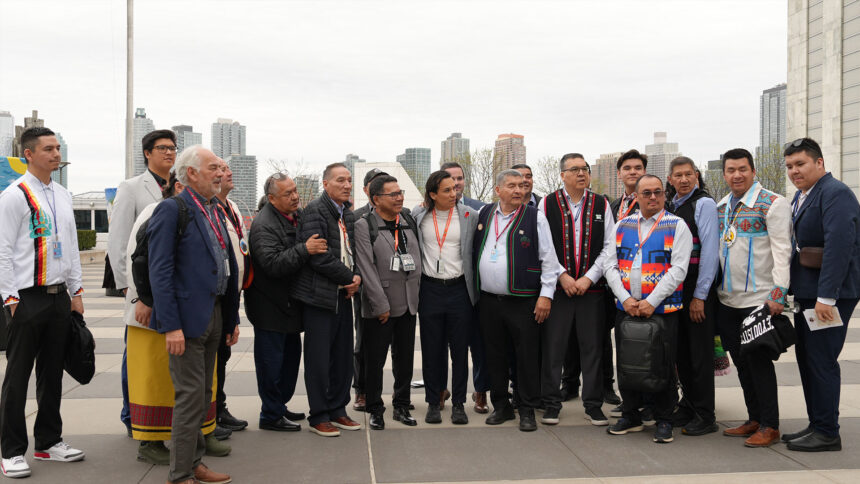
Leave a Comment


